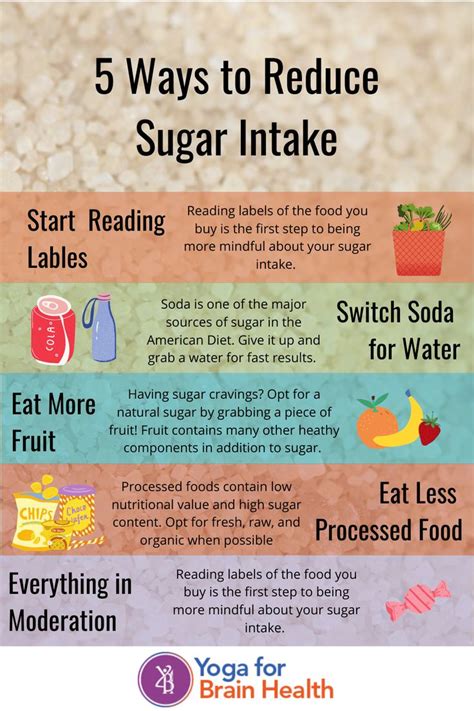Effective strategies to reduce added sugar intake?

Reducing added sugar intake is one of the most impactful steps you can take towards a healthier lifestyle. Found in countless processed foods, sugary drinks, and even unexpected items, added sugars contribute to a host of health issues, including weight gain, type 2 diabetes, heart disease, and dental problems. By making conscious choices and adopting smart strategies, you can significantly cut back on your sugar consumption and enjoy improved energy, better mood, and long-term well-being.
Understanding the Problem: Where Added Sugar Hides
Added sugars are not just the spoonfuls you put in your coffee. They are often sneakily incorporated into packaged foods to enhance flavor, extend shelf life, or improve texture. Common culprits include sodas, fruit juices, energy drinks, flavored yogurts, cereals, granola bars, sauces, salad dressings, and baked goods. Learning to identify these hidden sugars is the first critical step in your reduction journey.

Effective Strategies to Drastically Reduce Added Sugar
1. Become a Label Reading Expert
The nutrition label is your best friend. Look for the “Added Sugars” line under “Total Carbohydrates.” Pay attention to the ingredient list as well. Ingredients are listed in order of prevalence, so if sugar, high-fructose corn syrup, corn syrup, dextrose, fructose, glucose, sucrose, or maltose appear near the top, that product is likely high in added sugar. A good rule of thumb is to aim for products with minimal or no added sugars.
2. Ditch Sugary Drinks
This is often the easiest and most impactful change. Sugary beverages like soda, sweetened teas, sports drinks, and fruit juices (even 100% juice can be high in natural sugars, but added sugars are the main concern here) are major sources of empty calories and added sugar. Opt for water, sparkling water with a squeeze of lemon or lime, unsweetened tea, or black coffee instead. If you enjoy flavor, try infusing water with fruits like cucumber, mint, berries, or oranges.

3. Cook More at Home
When you prepare your meals, you have complete control over the ingredients. Many pre-made sauces, marinades, and dressings are loaded with added sugar. Making your own from scratch allows you to choose natural, whole ingredients and avoid unnecessary sweeteners. Experiment with herbs, spices, and natural flavors to enhance your dishes.
4. Rethink Your Desserts and Snacks
Instead of reaching for cookies, cakes, or ice cream, try natural alternatives for your sweet cravings. Fresh fruit is naturally sweet and packed with fiber, vitamins, and antioxidants. Berries, apples, bananas, and oranges can satisfy a sweet tooth. Plain Greek yogurt with a handful of berries, a small piece of dark chocolate (70% cocoa or higher), or a handful of nuts can also be satisfying and low in added sugar.

5. Choose Whole, Unprocessed Foods
Focus your diet around whole, unprocessed foods like vegetables, lean proteins, whole grains, nuts, and seeds. These foods are naturally low in added sugar and rich in essential nutrients. The more you build your meals around these ingredients, the less room there will be for processed items high in added sugar.
6. Gradually Reduce Sweetness
Your taste buds can adapt. If you’re used to very sweet foods, try gradually reducing the amount of sugar you add to coffee, tea, or cereal. Over time, you’ll find that foods you once thought were bland become perfectly sweet, and overly sweet items might even taste cloying.

7. Be Wary of “Healthy” Sounding Products
Terms like “all-natural,” “organic,” or “gluten-free” do not automatically mean low in sugar. Many of these products still contain significant amounts of added sweeteners. Always revert to reading the nutrition label to make informed decisions, regardless of marketing claims.
The Profound Benefits of Cutting Back
Reducing your added sugar intake can lead to remarkable improvements in your health. You may experience more stable energy levels throughout the day, improved mood, clearer skin, better sleep, and a reduced risk of chronic diseases. It also helps in maintaining a healthy weight and supports better dental health.

Conclusion
Embarking on a journey to reduce added sugar is a powerful investment in your health. While it may seem challenging at first, by implementing these strategies—becoming a savvy label reader, avoiding sugary drinks, cooking at home, and choosing whole foods—you can gradually transform your diet and taste preferences. The benefits extend far beyond just weight loss, leading to a healthier, more vibrant you.









